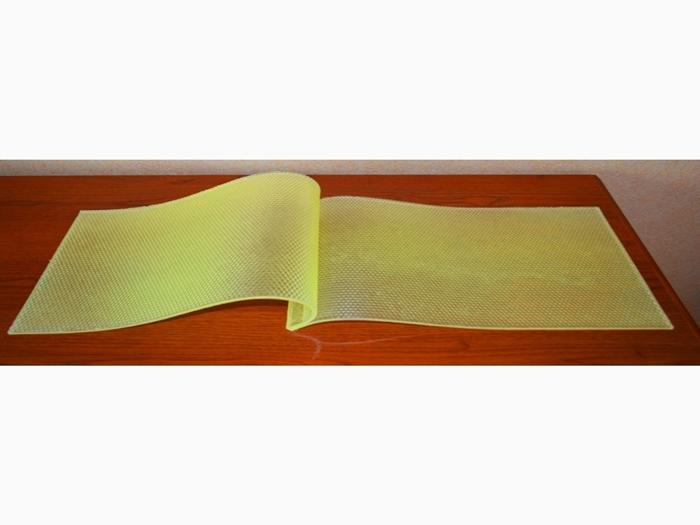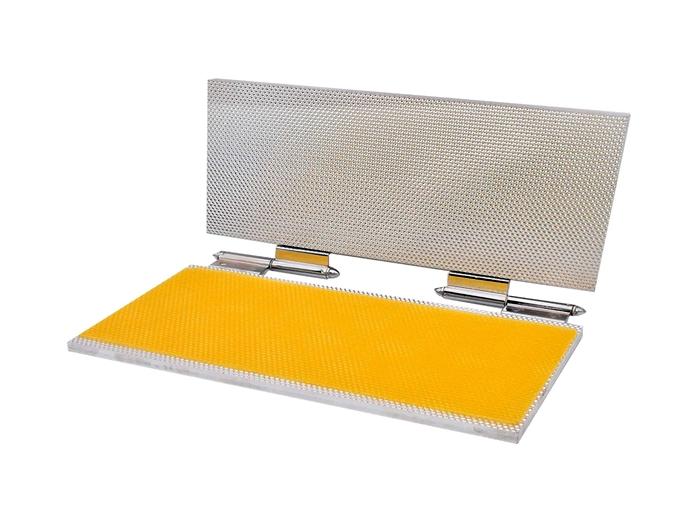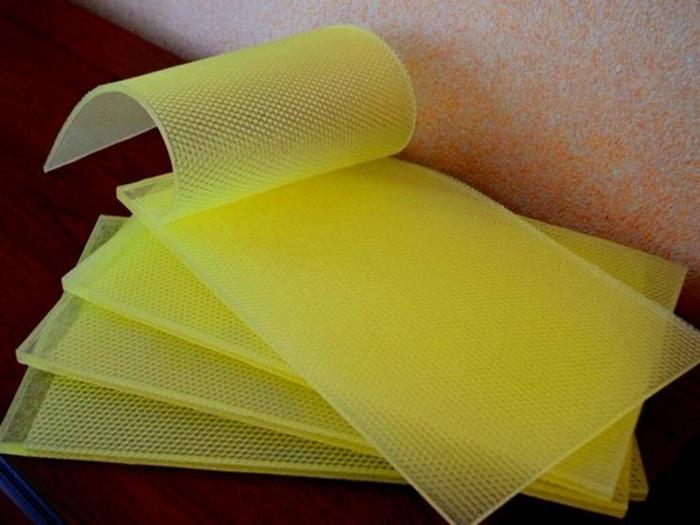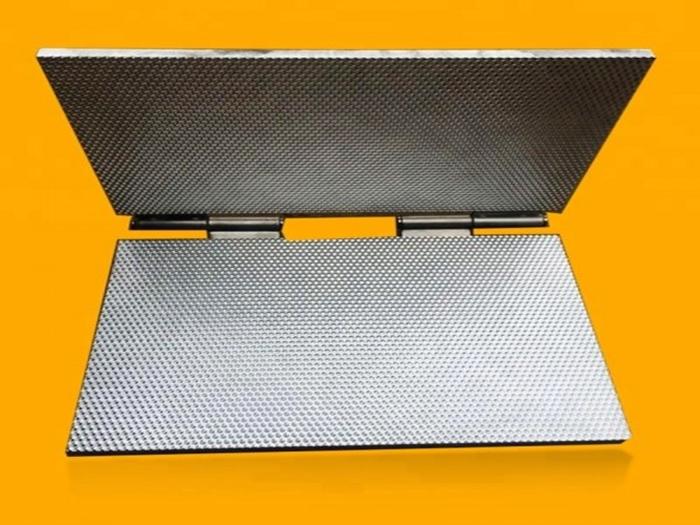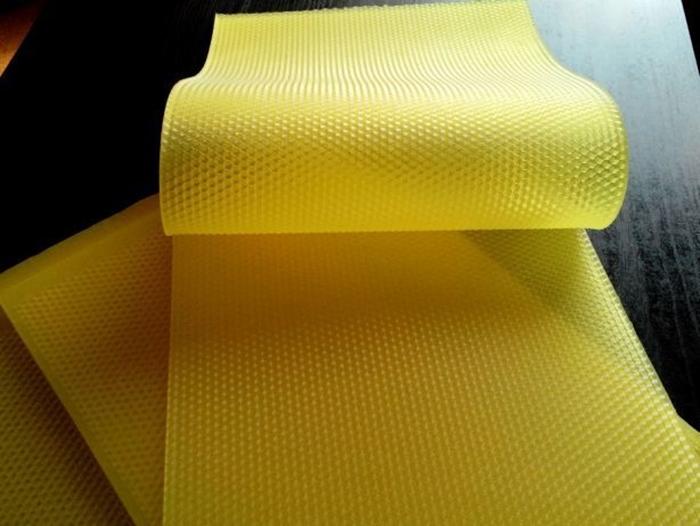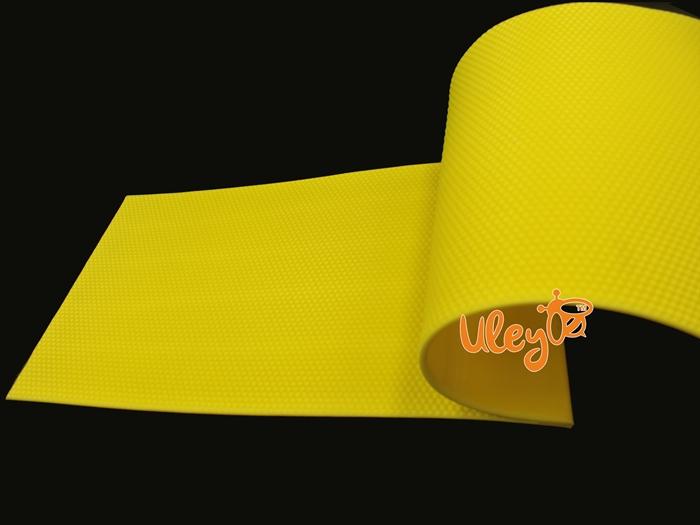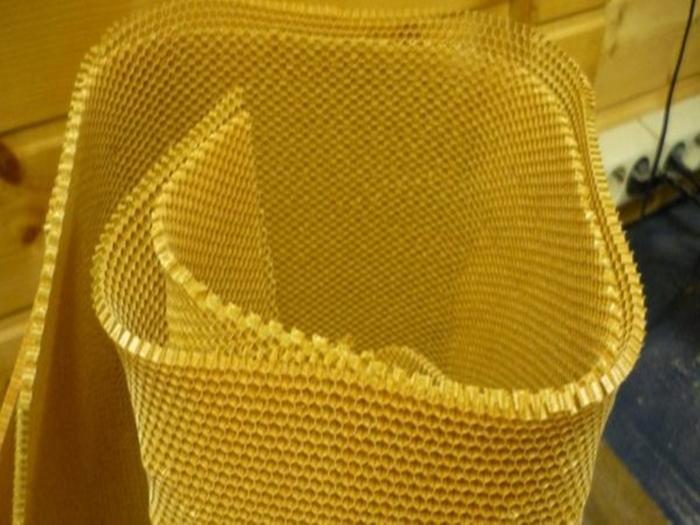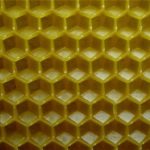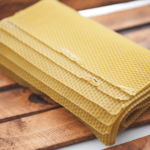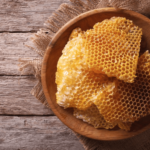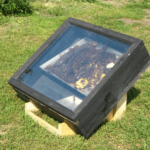Before the onset of the spring season, bees build honeycombs consisting of hundreds of cells, in which larvae will then be deposited and nectar will be stored. Beekeepers try to make the work of their charges easier. Frames with wax sheets are placed inside the hive, on the surface of which shallow cells are imprinted using a wax matrix. The insects themselves “complete” the honeycombs from them and quickly begin collecting pollen. This increases the health and fertility of the bee colony.
What are they for?
To increase honey yield and make the work of bees easier, frames with foundation are inserted into the hives, where a press has squeezed out small hexagons. Winged workers calmly react to such a substitute. They are actively completing cells from it, “construction” is going much faster. Using foundation brings many benefits:
- the healthy condition of worker bees is maintained;
- there is an opportunity to expand the nesting area;
- increases productivity;
- offspring improves;
- blocks swarming.
By caring for the bees, beekeepers also benefit themselves by producing more honey.
Varieties
In beekeeping over the years, the division of foundation by type has been established.
Natural
Can be produced by insects or humans from pure beeswax. This is the most common and expensive type. Its undoubted advantages include:
- absence of impurities;
- no additional processing required;
- perfectly suits the needs of insects;
- resistance to breakage.
Natural material also has its disadvantages, these include:
- cannot be used a second time;
- difficult to pump out honey;
- deformation when heated.
Artificial (semi-natural)
Made from wax with added impurities, you can either buy it in a store or prepare it yourself. It has the following advantages:
- natural color, smell, consistency;
- high quality;
- durability – can be used for 4-5 years;
- more affordable price compared to natural;
- does not deform under the influence of temperature.
The disadvantages include:
- more difficult to build up;
- less elastic, easier to break;
- If it loses its shape, it cannot be leveled.
Plastic (polyurethane)
The advantages of plastic honeycombs include:
- durability - more than 10, sometimes up to 20 years;
- no need for extensions;
- does not deform;
- additional protection against pests.
The disadvantages include:
- the need to apply wax to the surface before installation to ensure a natural environment;
- needs to be processed periodically;
- cannot be repaired if broken.
Plastic foundation is not very common among domestic beekeepers, since there is no reliable information about how polyurethane affects the laying of new larvae.
How to use
Several methods are used to make foundation:
- pressing;
- rollers;
- casting;
- matrix.
The latter consists of two plates, on the surface of which there are special shapes that form honeycomb cells. A sheet of wax is placed between the plates and rolled out inside. A silicone matrix is a very convenient, simple and practical device for making foundation.
Carefully! The melting of wax should not be left unattended. When hot, it can be a fire hazard.
approximate cost
Foundation is usually sold in packs of 1 or 5 kg. One-kilogram packs cost 620 rubles, the price of five-kilogram packs ranges from 2,900 to 3,100 rubles. Buying wax sheets every year is not very profitable. Experienced beekeepers purchase equipment for their production.
Approximate cost of devices:
| Name | Price (in rubles) |
| Silicone Matrix Bees Wax Mold | 2.695 |
| Matrix machine Bees Wax Embossing D (“Dadan”) | 39.500 |
| Matrix machine Bees Wax Embossing R (“Ruta”) | 37.400 |
| Rollers | 17.990 |
| Silicone matrix “Dadan”, “Ruta” | 15.900 |
You can reduce the cost significantly by making the matrix yourself.
Modern beekeeping cannot be imagined without the use of foundation. It increases honey production and improves the health of families. Using a matrix, it will not be difficult to make it at home.


